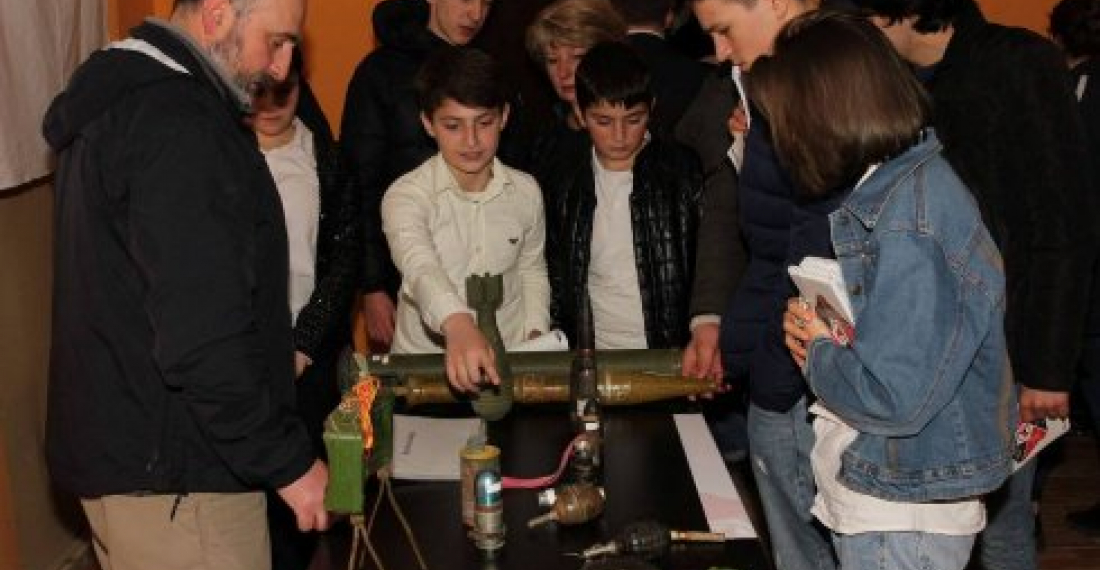In the framework of the LANDMINE FREE SOUTH CAUCASUS campaign, a number of activities are being held with school children throughout the region to raise their awareness of the problem of landmines. The campaign is running from 4-10 April.
On Friday, (5 April) in Tbilisi, a mine awareness activity was held at a school where most of the pupils are from Georgia's communities displaced by the conflict in Abkhazia and South Ossetia. The activity was organised by the Europe-Georgia Centre in co-operation with the Education authorities of the government of the Abkhaz Autonomous Republic.
During the activity, Oleg Gochashvili an expert from the Agency for Humanitarian Demining of the Georgian government explained the risks of unexploded ordinance to the young people present. A number of examples of how unexploded ordinance can look like were exhibited.
Speaking at the event, Mr Vakhtang Kolbaia, Chairman of the Government of the Tbilisi based Abkhaz Autonomous Republic, said that the South Caucasus had seen many conflicts in recent years and this has left a legacy of landmines and unexploded ordiance throughout the region. He hailed the efforts to clean the region from this problem and welcomed the campaign to make people more aware of the hazards.
Addressing the event, Dr Dennis Sammut , the Director of LINKS, the organisation that is co-ordinating the campaign Landmines Free South Caucasus, said that it was important that the messages of the campaign were being brought to the refugee and IDP community too. Refugees, IDPs and people living in conflict zones were very often the victims of landmines, he said.
Various videos that have been prepared as part of the campaign were shown during the activity. The campaign landmine Free South Caucasus runs from 4-10 April and is supported by the European Union.
#landminefreeSC
source: commonspace.eu
photo: Oleg Gochashvili an expert from the Agency for Humanitarian Demining of the Georgian government explained the risks of unexploded ordinance to young people at a school activity in Tbilisi on 5 April 2019







